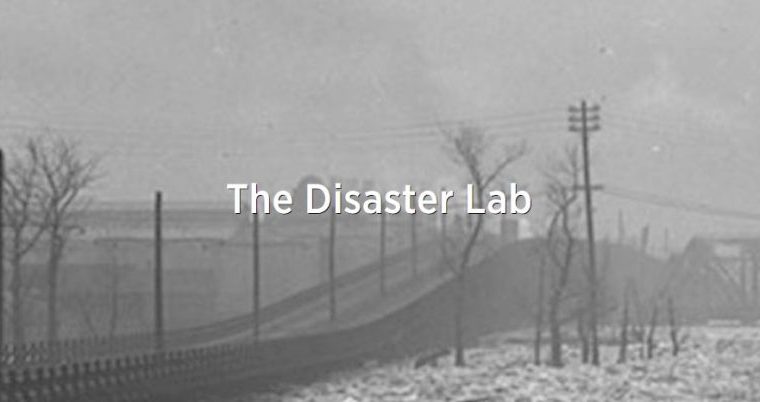
Joseph Mathieu, August 12, 2021
The Disaster Lab: Understanding the Links between Disasters, Humanitarianism and Migration
About two years ago, Carleton history Prof. Laura Madokoro had what amounted to an existential crisis.
She felt the need to refocus her work — which covers the histories of refugees, humanitarianism, race and exclusion, in particular — to bring some historical perspective to contemporary discussions.
How, she wondered, might a historian contribute to debates about environmental refugees and climate displacement?

For Madokoro, the answer lay in how notions of responsibility and humanitarianism have evolved historically. She is particularly attuned to the current North American framework, which positions refugees as coming only from away. This applies to environmental refugees as well, as seen by a recent appeal from residents of Kiselyovsk, Russia to come to Canada.
She suspects there is a difference in how citizens and non-citizens have been treated in times of disaster. This is crucial, given the complicated and sometimes hostile relationship that Indigenous peoples have with formal state citizenship and the very nature of certain disasters.
“We don’t really think about citizenship when we talk about relief and disaster relief,” says Madokoro. “It’s either assumed or implicit. But citizenship may be critical to understanding how our sense of obligations to one another have evolved historically.”
Madokoro’s most recent project, The Disaster Lab, plans to add to conversations about relief efforts and particularly the role of migration in shaping disaster relief efforts. Funded by an Early Researcher Award (ERA), the new research program explores the history of displacement, disasters and migration on multiple scales.
Madokoro and a team of graduate students are conducting a critical investigation of the Canadian Disaster Database (CDD) to identify disasters that may have involved migration in some ways. The CDD, which is maintained by Public Safety Canada, catalogues disasters by certain criteria — including fatalities, financial loss, and other data — as well as types, such as natural disaster and conflict, among others.
They are also searching Library and Archives Canada (LAC) for government documents that reference disasters in ways that don’t necessarily fall into the specific language of the database.
“As with so many historical terms, there are very specific and legal ways of defining a disaster and then there are much more colloquial and fluid terms,” says Madokoro.
Madokoro’s research regularly walks this path: comparing how governments and individuals, particularly the people most immediately affected, understand certain issues. She hopes the new lab’s investigations can shed light on the relation between domestic relief efforts and the growth of international humanitarianism by organizations such as the Red Cross.
Another hope is that the timing of this work can help advance conversations about disaster relief and climate change. Recently, natural disasters have been top-of-mind for Canadians with reports of forest fires, evacuations and destruction in B.C. and Ontario in the news.
Madokoro’s team is also working with local Gloucester High School Grade 9 students to share the project findings and speak directly with youth about the current issues of climate change, environmental disasters and global displacement.
Working with young Canadians is an encouraging part of the project for Madokoro. As soon as she started to imagine this new research, she and MA candidate Valerie Wood dove into LAC holdings to find policy files referencing disasters in Canada. This work will be amplified with the new ERA funding, in which history MA candidate Arden Hody and history PhD candidate Helen Kennedy will join in.
“I’m fortunate to be able to tap into the talents of these incredible graduate students because they have the capacity to ask really great questions about disaster relief, research paths, and where this work is going. They have great energy and ideas, and this will ultimately help drive the project forward.”
Share: Twitter, Facebook